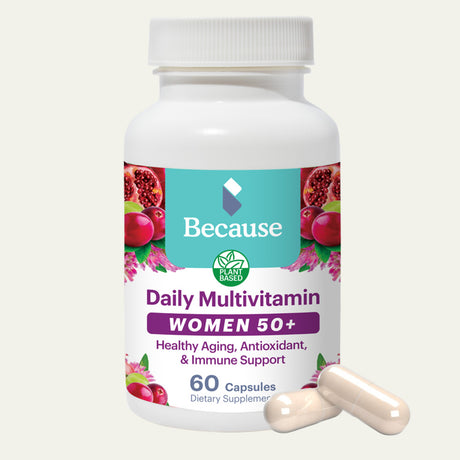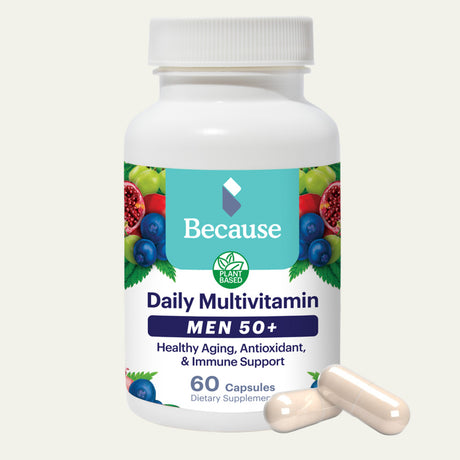Why Caregiving is Important
Caregiving is an overlooked and undervalued part of our society, but caregivers are essential to the health and well-being of many people, including our own friends and family. Keep reading to find out what caregivers do and find out if you or your loved one could benefit from a caregiver!
What is a Caregiver?
A caregiver is anyone who helps another person live their daily life. They might be a professional, like a nurse, or they might be a family member, like a parent caring for their children or an adult child caring for their parents or grandparents. If you provide regular assistance to someone in your life, you are also a caregiver.
What Do Caregivers Do?

There is no formal list of things caregivers do. They might help with transportation and shopping, with personal care, or even help by simply providing regular social interaction. Anything that helps someone meet their basic needs could be a part of a caregiver’s role.
Why Caregiving is Important for Older Adults
Most of us will require some level of caregiving as we age and fulfilling our daily needs becomes more difficult. Others will need caregiving after major life events. Caregivers can assist with a range of different needs.
Caregivers Assist with Recovery After Illness, Injury, or Surgery
No matter how independent we are in our everyday lives, everyone has times when they need help. If a loved one is incapacitated thanks to an illness or surgery, a caregiver can help them cope by providing medical support and assisting with everyday tasks, like preparing meals and shopping. Much of this work can be done by non-professionals, but when more advanced medical treatment is needed you might need to hire a medical professional to provide care.
Caregivers Provide Toileting and Hygiene Support
One of the less-discussed parts of aging, illness, or injury is struggling with personal hygiene. A caregiver can help with bathing, skincare, changing incontinence underwear, and other grooming tasks.
If you’re a caregiver looking to improve your hygiene routines, Because Market is here to help. Take our fit quiz to get a free sample pack of the most comfortable and absorbent incontinence products available! Because Market also carries a range of skin care products that can help to maintain good hygiene with less stress.
Caregivers Assist with Daily Activities
We tend to lose strength and slow down as we age, making daily tasks more of a chore. Many older adults also lose their drivers’ licenses, making it difficult to run errands. If you have a loved one who is struggling with everyday activities, a caretaker can manage these tasks and help them stay independent.
Caregivers Provide Mobility Support
Caregivers can also help older adults or people dealing with incontinence, illnesses, or injuries move about non-accessible spaces. Sometimes peoples’ homes have too many steps, or they can’t fit their mobility device through the narrow hallways. Or they may have to go to places without elevators or other basic accommodations. A caregiver can assist in all of these cases by providing support and helping their care recipient navigate unfriendly spaces.
Caregivers Provide Support for People with Cognitive Issues
Nearly a third of older adults in the United States experience dementia or mild cognitive impairment. Cognitive issues can affect every aspect of daily life, from managing appointments to bathing to taking medication. A caregiver can help by providing structure and support to an older adult facing cognitive decline or disability.
Caregivers Monitor their Clients’ Health
Gradual changes in mobility or general health can be difficult for individuals to notice; a caregiver can help by keeping a health tracking journal. This helps them know when their client needs to get medical treatment and can also assist doctors in properly diagnosing and treating their patients.
Caregivers Provide Companionship
Loneliness and social isolation are very common in older adults and a key risk factor for dementia, mental illness, and other serious illnesses. You may not consider talking to someone as providing care, but in fact providing emotional support is one of the most important ways a caregiver can help older adults stay healthy as they age. Simply being with someone can improve their mood and overall health.
Caregivers Help Older Individuals Age In Place
Whether it’s to maintain routines, friendships, physical health, or to save money, many older adults prefer to age in place. Caregivers can give older adults the freedom they want by helping them deal with the tasks they can’t do alone.
Caregivers Are Often More Affordable Than Residential Care
The costs to buy into a room or apartment in a residential facility are often prohibitive. If an older adult already has a place to live it can be much more affordable to hire periodic or even live-in caregivers than to try to move into a facility.
Caregivers Provide Peace of Mind for Family Members
It can be stressful to know that your loved one is struggling while you’re unable to provide help. Knowing that your family member is receiving regular visits from someone who’s there to look out for them can give you peace of mind and ensure your family member gets the assistance they need.
Different Types of Caregivers

Family Caregiver
Family members frequently work as caregivers. The benefits are clear: they’re free, dedicated, and already have strong relationships with the person they’re caring for. However, caring for a family member can be difficult and isolating, especially since most family caregivers have little to no training or support. In addition, some people don’t want a family member doing certain things for them like helping with hygiene or medical care. Be sure to talk to your family member about how they feel about your help and what you can do to make it more comfortable for them.
If you are a caregiver, remember to take care of your own needs too. Keeping a caregiver journal, learning tips to help make your job easier, and reaching out to support groups like the Family Caregiver Alliance can help you manage your own stress and deal with difficult situations with patience and compassion.
Professional Caregiver
Professional Caregivers work with a caregiving agency to provide assistance. They typically have some training as a nurse, a nursing assistant, or as a home health aide, and negotiate the terms of their work with their agency. The agency then matches them to individuals who need care. This is a reliable way to find regular care, but if you can’t afford a professional there are other options.
Independent Caregiver
Independent caregivers are people who provide care as their job but are employed directly by the person requesting care rather than through an agency, hospital, or other caregiving organization. They often cost less than an agency, but that comes with more responsibility for you as the employer. Negotiating the terms of an independent caregiver’s job is an important first step to make sure you and the person you hire understand the expectations and limitations of the relationship.
Volunteer Caregiver
A volunteer caregiver provides caregiving services for free, often as part of a volunteer organization. Volunteers are free and passionate about their work; however, they may be more limited in the assistance they can provide (e.g. providing transportation and social interaction but not hygiene care), and because this isn’t their primary job they might not be available as often as professional or independent caregivers.
If you or your loved one needs occasional services like social interaction, help getting to and from social engagements or doctor’s appointments, or help with tasks like cooking or running errands, a volunteer caregiver could be a great option. The National Volunteer Caregiving Network has a listing of volunteer organizations in the United States and is a good place to start looking for help.
Does Your Loved One Need a Caregiver?

Does your loved one:
- Frequently miss appointments?
- Often seem lonely?
- Need temporary help after a surgery or illness?
- Have a chronic illness that makes everyday tasks painful or difficult to do?
- Have trouble getting around the house or outside the house?
- Have trouble getting dressed or using the bathroom or other basic personal needs?
If you answered yes to 1 or 2, your loved one could benefit from regular visits from a caregiver. Someone to bring them to appointments, remind them of things they need to do, or simply take them out for a walk and chat can make a world of difference for an older adult.
If you answered yes to any of the other questions, your loved one most likely needs more regular or intensive care. A daily or even live-in caregiver could greatly improve their quality of life.
If you are the primary caregiver for your loved one, consider bringing on another person to help you and give you a chance to rest. Caregiver burnout is a real concern, and is difficult on both you and the person you’re caring for. To be an effective caregiver, you also need to care for yourself.
Caregiving is an important role often overlooked in our society, but with the right preparation and assistance, it can be a rewarding experience for everyone.
Sources:
Centers for Disease Control and Prevention. (2021). Caregiving for Older Adults. https://www.cdc.gov/aging/caregiving/caregiver-brief.html
Columbia University Irving Medical Center. (2019). One in 10 Older Americans Has Dementia. https://www.cuimc.columbia.edu/news/one-10-older-americans-has-dementia
Centers for Disease Control and Prevention. (2020). Loneliness and Social Isolation Linked to Serious Health Conditions. https://www.cdc.gov/aging/publications/features/lonely-older-adults.html
Office of Disease Prevention and Health Promotion. (n.d.). Get Support if You're a Caregiver. https://health.gov/myhealthfinder/healthy-living/mental-health-and-relationships/get-support-if-youre-caregiver
Family Caregiver Alliance. (n.d.). Support Groups. https://www.caregiver.org/connecting-caregivers/support-groups/
Tennessee Technological University. (n.d.). About Caregiving. https://www.tntech.edu/cis/caregivingcenter/about-caregiving.php
PayingForSeniorCare.com. (n.d.). Hiring Independent Caregivers. https://www.payingforseniorcare.com/homecare/hiring-independent-caregivers














